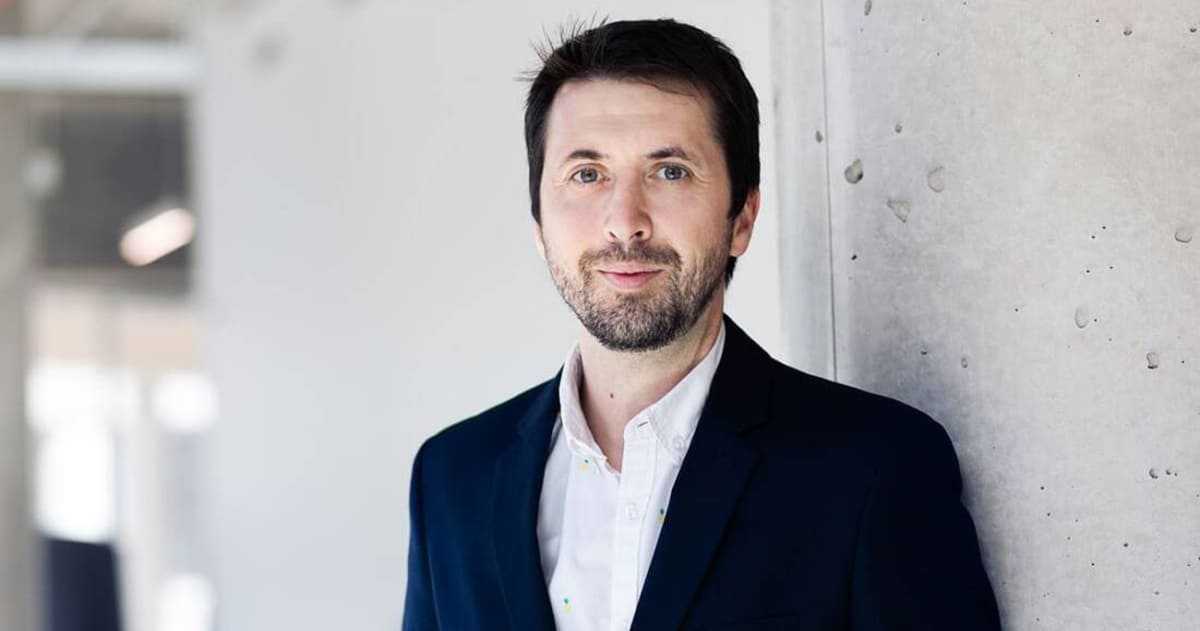A Passion for Privacy-Aware Learning
Purchased from Gettyimages. Copyright.
Mohammadhadi Shateri, professor at Systems Engineering Department.
Machine learning, deep learning, data privacy, artificial intelligence and its application in learning systems security—these are just a few of the primary research interests of Mohammadhadi Shateri.
In June 2022, Mohammadhadi joined the ÉTS Systems Engineering Department as Assistant Professor to continue his research endeavours and fulfill his teaching aspirations. His path to ÉTS was paved by hard work and almost three decades of non-stop education.
Key Lessons of Ongoing Education
It all started with Mr. Shateri Sr., who taught math for 30 years and sparked his son’s interest in the discipline. “When I was six, I used to go with my father to his classes, sit there and listen to his teaching,” recollects Mohammadhadi. “This is when I realized that I was really fond of mathematics.”
By 2008, when it was time for university, his mind was made up. Shateri picked a faculty where math was used extensively: Electrical and Electronics Engineering at Teheran Polytechnic.
Later on, he earned his M.Sc. from the University of Manitoba, and in 2021, his PhD from McGill in Electrical and Computer Engineering. During his studies, Shateri won the University of Manitoba graduate fellowship, the Manitoba graduate scholarship, and the McGill engineering doctoral award.
Thirteen years and three universities later, Mohammadhadi reflects on the most valuable knowledge he has acquired. “I’ve learned how to interact with diverse people from different countries, backgrounds and cultures, and how to effectively collaborate with them.”
Applying Theory to Practice
Shateri’s experience includes developing solutions to industry-relevant problems in collaboration with Hydro-Québec, and with a number of universities and researchers. His recent work is related to developing privacy-aware data-sharing models with applications in domains like smart power grids and biomedical signal processing.
The key reason why Mohammadhadi joined École de technologie supérieure (ETS) was because of their focus on industrial collaboration. He really likes to apply theory to practice, for which this industry-oriented engineering school with its cutting-edge equipment is ideal.
“Since 1974, ÉTS is well known in Quebec and beyond for their close cooperation with a variety of industries. I find it fascinating. That’s what made me apply,” tells Assistant Professor Shateri. He also appreciates the fact that at ÉTS, he can accelerate his learning of French, which will help him integrate better and communicate with his students and peers more effectively. At ÉTS, Mohammadhadi works in several research fields, including AI and its practical applications.
Healthier Living Thanks to LIVIA
ÉTS Professeur Mohammadhadi Shateri
Professor Shateri is now collaborating with Professor Eric Granger on a research project focused on AI-based cancer detection. The goal is to design deep learning systems that are accurate, scalable, and privacy-preserving, addressing critical challenges in medical AI. Their approach leverages multimodal learning to integrate unpaired visual (e.g., histology images) and textual (e.g., clinical notes) data using contrastive learning. They also develop advanced multi-teacher knowledge distillation techniques that transfer only the most relevant information to compact models, and explore data-free distillation methods to train AI without direct access to sensitive patient data. This research aims to make AI more applicable and reliable in real-world clinical settings.
Line Up for the Upcoming Courses
In the future, Shateri sees himself doing more research than teaching, but believes both to be extremely important. “As part of my work at ÉTS, I am responsible for delivering high-quality updated lectures to university students,” says Assistant Professor prior to sharing his teaching plans.
Spoiler: Mohammadhadi wants to develop several courses to cater to different needs.
One will be about generative AI models and aimed primarily at undergrad and graduate students. A course on probability theory will surely be useful to any engineering student. Another course will be dedicated to machine learning, a topic which has fans in different engineering fields.
Shateri is also planning to develop a brand-new course covering high-dimensional probability and statistics, and high-dimensional data analysis—strongly recommended for graduate students who are doing research on signal processing and machine learning.
Finding Solutions to Privacy Issues
Mohammadhadi Shateri values people’s privacy and applies all his knowledge and efforts to protect it. The key mission of his current and future research is to secure the integrity of the data collected from people using Artificial Intelligence.
“The AI models have two main components: the learning system and the data,” explains Shateri. “Alas, in the process of collecting and sharing data, both these components can leak private information, in an unwanted manner. Adversaries can steal people’s sensitive data and misuse it against them,” he adds passionately.
His big plan at ÉTS is to create a group of researchers who will be dealing with these security issues. The idea is to make the learning models secure, to ensure secure data processing and sharing, so that nobody can misuse people’s private information.
Mohammadhadi Shateri believes that this topic is extremely important in the modern world, because lots of groups and individuals can get hurt when they least expect it.
“I hope to be able to find a solution and to make sure that people’s information remains secure. I consider this to be my main goal.”



